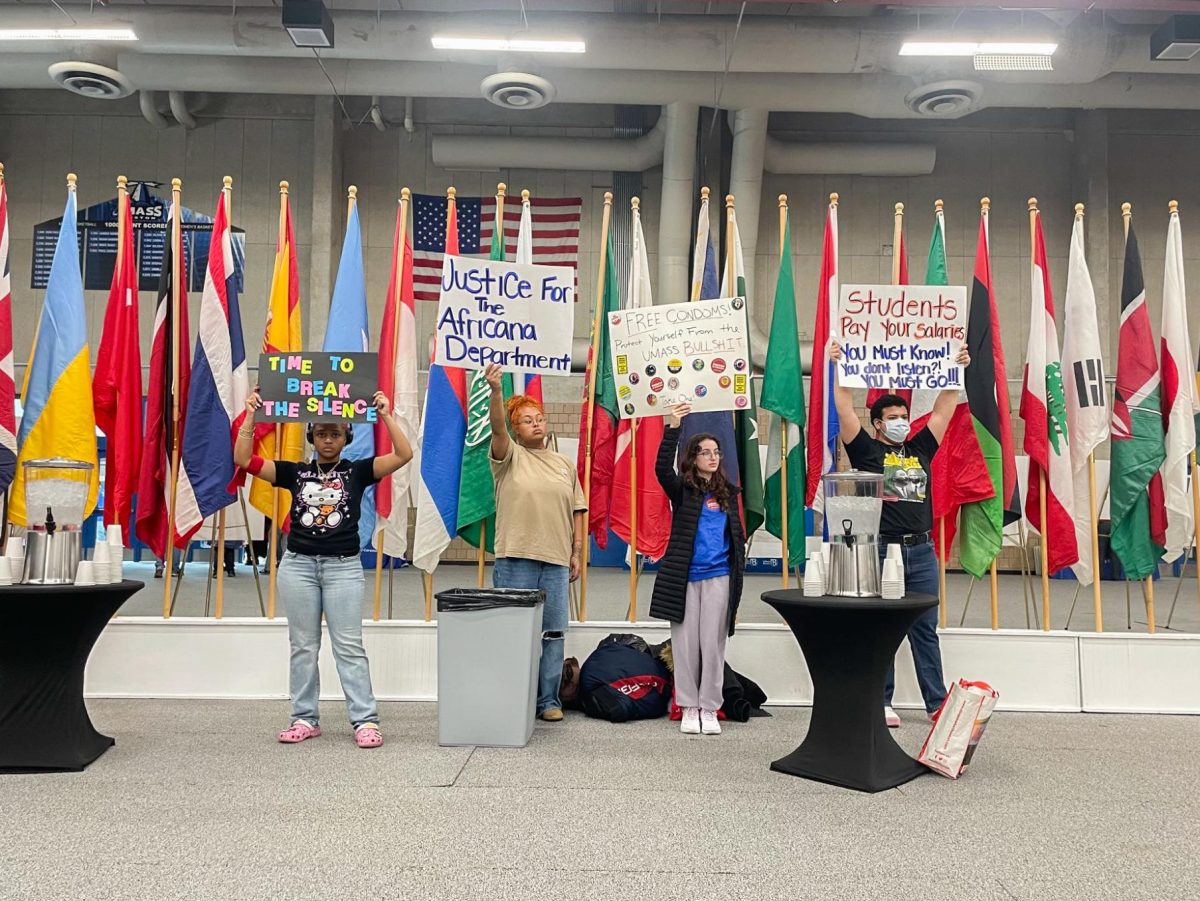On August 30th, 2024, an email was sent to the UMass Boston community containing an updated version of the university’s protest policy.
UMass Boston students shared similar concerns about the policy’s contents, including restrictions to noise level, capacity, and space use.
Kye Hale, a fourth-year psychology student, shared a common complaint that has circulated among students since last spring: the preacher that visits each semester, touting a massive sign filled with hateful language.
“It’s a bit hypocritical because they let all of these other people who aren’t even a part of our campus, like the religious preachers, come on and deliver hate speech to the students directly, and yet they won’t do anything about that,” he said.
“Of course, protest should be peaceful if it’s on a college campus,” said classics student Hermione Barringer. “But the fact that they are completely prohibiting the use of the indoor for it seems rather underhand, especially since protests are not just a summer thing. People should be able to protest without having to go out and stand in the snow or the wind or the rain or the hail.”
There are also concerns that this new policy infringes on First Amendment rights.
“Every American has a First Amendment right to peaceful protest, and the fact that a majority state-funded university is putting in restrictions to that — I don’t think it’s right,” said chemistry major Link Patria.
“So, First Amendment is out of the question,” finance student Anya Reshetiloff said. “How are you going to take away the biggest assembly area on campus? You’re going to say, ‘No, you can’t protest,’ and then furthermore limit in other areas how many people can actually be there, and if we go over that limit, you’re then going to say, ‘You’re subject to administrative and disciplinary action.’ What the f— does that mean?”
Sophomore Kristina Bedoyan doubted the University’s intentions for this policy. “They just want how Harvard was giving out and expelling people. They just want to be able to do that, so they’re putting it in writing.”
“If you have to tell us what we can and can’t do in order to try to protest against something, it’s not a protest,” said first-year student Max Gale.
This change comes as a result of an influx of campus protests at UMass Boston and all over the country. The policy strictly bans items that may “present public safety risks,” notably including tents– a clear allusion to the encampments for supporting Palestine last spring.
It’s no secret that UMass Boston administration fears any sort of public uprising. Instead of correcting their mistakes and listening to the people, the university thinks up new ways to silence its students and faculty.
Coming from a school renowned for its diversity and inclusion, this is insulting to UMass Boston’s unique community, with many students attracted to the school’s claims of acceptance and equality.
In the words of Reshetiloff, “You can’t market yourself as the most diverse campus in New England and then oppress these diverse students who are just expressing their First Amendment rights.”


